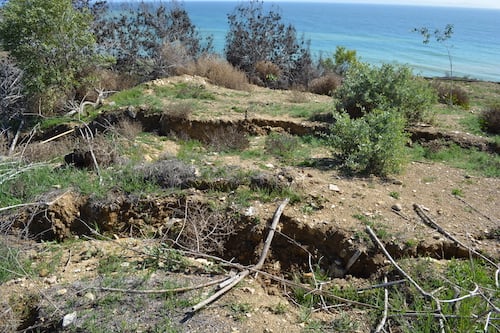Thomas Oommen (GMES) was quoted by SFGATE and the Seattle Times. Both outlets picked up a March 6, 2023, Los Angeles Times story about the slow-moving Portuguese Bend landslide affecting the city of Rancho Palos Verde in southern California.
Palos Verdes Peninsula has long been prone to landslides, and the most dramatic one is affecting Portuguese Bend, an area named after a Portuguese whaling operation. The geological phenomenon has hit a 240-acre area hard over the last seven decades, causing fissures to open in the earth and homes to strain, buckle and drift, sometimes outright wandering onto adjacent properties.
The land moves sometimes horizontally, sometimes vertically. Sometimes inches, sometimes feet.
Thomas Oommen, professor of geological sciences at Michigan Technological University, said it’s an interesting case study because there are only a few landslides with such significant movement every year. What distinguishes Portuguese Bend is that the slope has not failed catastrophically — yet — and the humans atop are largely staying put, riding the slow-moving land for as long as they can.
Oommen’s research efforts focus on developing improved susceptibility characterization and documentation of geo-hazards, such as earthquakes and landslides.
